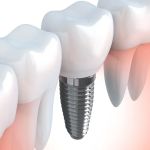Impact of Diet on Dental Health
Your diet plays a significant role in your overall dental health. What you eat affects the strength and condition of your teeth and gums, influencing your susceptibility to cavities, gum disease, and other oral health problems. Understanding how certain foods and nutrients impact your dental health can help you make better choices to keep your smile bright and healthy. In this article, we will explore the relationship between diet and dental health, discussing the foods that promote healthy teeth and gums and those that can cause damage.
1. How Sugar Affects Your Teeth
One of the biggest culprits in the decline of dental health is sugar. Sugar is not only the main cause of cavities but also contributes to the growth of harmful bacteria in your mouth. When sugar is consumed, it interacts with the bacteria in your mouth, producing acid that attacks the enamel of your teeth. Over time, this can lead to tooth decay and cavities.
Foods and drinks high in sugar, such as candies, soda, and sugary snacks, are particularly harmful to your teeth. To protect your dental health, it's crucial to limit sugary foods and drinks, and if you do indulge, make sure to brush your teeth afterward. If you can’t brush immediately, rinsing your mouth with water can help reduce the impact of sugar on your teeth.
2. The Role of Calcium and Vitamin D
Calcium is essential for maintaining strong and healthy teeth. It helps to protect tooth enamel and supports the bones that hold your teeth in place. Without adequate calcium in your diet, your teeth can become brittle and more prone to damage.
Vitamin D plays a vital role in helping your body absorb calcium, making it a crucial nutrient for dental health. Foods rich in calcium include dairy products such as milk, cheese, and yogurt, as well as leafy green vegetables like kale and broccoli. Vitamin D can be found in foods like salmon, egg yolks, and fortified cereals, and it can also be synthesized by your body when exposed to sunlight.
3. The Importance of Fiber-Rich Foods
Fiber is another key player in maintaining good dental health. A diet rich in fiber helps to keep your gums healthy and stimulates the production of saliva, which acts as a natural defense against tooth decay. Saliva helps wash away food particles and neutralizes acids in the mouth, reducing the risk of cavities.
High-fiber foods like fruits, vegetables, and whole grains also help in the prevention of gum disease. Apples, carrots, celery, and leafy greens are excellent examples of fiber-rich foods that can help clean your teeth naturally and reduce plaque buildup. These foods also contain important vitamins and antioxidants that support overall oral health.
4. The Impact of Acidic Foods and Beverages
Acidic foods and beverages can have a significant impact on the health of your teeth. They can erode tooth enamel over time, leading to increased sensitivity and a higher risk of cavities. Common acidic culprits include citrus fruits, vinegar-based dressings, soda, and sports drinks.
While acidic foods like oranges and lemons are rich in vitamin C and other essential nutrients, they should be consumed in moderation to prevent enamel erosion. It’s also a good idea to rinse your mouth with water after consuming acidic foods or beverages to help neutralize the acids in your mouth. For those who consume citrus fruits regularly, consider using a straw to minimize contact with your teeth.
5. Hydration and Its Role in Dental Health
Staying hydrated is essential for maintaining optimal dental health. Drinking water throughout the day helps wash away food particles and bacteria from your mouth, preventing plaque buildup. Water is the best choice for hydrating, as sugary and acidic drinks can cause damage to your teeth.
In addition to promoting saliva production, water is also necessary for keeping your gums and teeth healthy. It’s important to drink water regularly, especially after meals, to help remove any food particles left behind. If you're looking to boost your hydration, you can also incorporate water-rich fruits and vegetables like cucumbers, watermelon, and strawberries into your diet.
6. Foods to Avoid for Better Dental Health
While some foods and drinks can promote good oral health, others can contribute to tooth decay and gum disease. It’s important to be mindful of the following:
- Sugary Snacks and Drinks: As mentioned earlier, sugar is one of the biggest contributors to cavities. Avoid sugary snacks and sodas that can lead to plaque buildup and enamel erosion.
- Sticky Foods: Foods like caramel, gummies, and dried fruit tend to stick to your teeth and can promote cavity formation if not cleaned away promptly.
- Alcohol: Alcohol can dry out your mouth, reducing the amount of saliva and making your teeth more vulnerable to decay. It’s important to drink plenty of water to balance the dehydrating effects of alcohol.
- Coffee and Tea: While coffee and tea have some health benefits, they can stain your teeth over time. If consumed in excess, these beverages can also cause dryness in the mouth.
7. Regular Dental Care and Diet
Maintaining a healthy diet is important, but it should be complemented with regular dental care to ensure long-term oral health. Brushing your teeth at least twice a day, flossing daily, and visiting your dentist regularly are essential for keeping your teeth in top condition.
If you're serious about improving your dental health, consider making a few dietary adjustments. Add more fiber-rich foods, reduce sugar intake, and ensure you're getting enough calcium and vitamin D. This, along with good oral hygiene practices, will help you maintain healthy teeth and gums for years to come.
If you need more guidance on maintaining optimal oral health, feel free to visit 【Dentistry Toothtruth】 for professional advice and tips on dental care and nutrition.
SEO Title: Impact of Diet on Dental HealthSEO Keywords: impact of diet on dental health, healthy foods for teeth, sugar and tooth decay, best foods for dental health, calcium for teeth, dental care tipsSEO Description: Discover how your diet affects your dental health. Learn which foods promote healthy teeth and gums, and which foods to avoid to prevent cavities and tooth decay.






 Calder Dental4.0 (5 review)
Calder Dental4.0 (5 review) Dental Ben's4.0 (171 review)
Dental Ben's4.0 (171 review) Northland Family Dentistry4.0 (111 review)
Northland Family Dentistry4.0 (111 review) Sheats Endodontic Group4.0 (148 review)
Sheats Endodontic Group4.0 (148 review) Ford Signature Dentistry4.0 (300 review)
Ford Signature Dentistry4.0 (300 review) Prosthodontics of Madison - Kendra Schaefer, DMD & Christine Roenitz, DMD4.0 (25 review)
Prosthodontics of Madison - Kendra Schaefer, DMD & Christine Roenitz, DMD4.0 (25 review) The Importance of Oral Health Education During Pregnancy for a Healthy Pregnancy
The Importance of Oral Health Education During Pregnancy for a Healthy Pregnancy Best Tips for Brushing Your Teeth Properly for Healthy Gums: Essential Techniques for Oral Health
Best Tips for Brushing Your Teeth Properly for Healthy Gums: Essential Techniques for Oral Health Why Skipping Dental Checkups Can Lead to Bigger Oral Health Problems
Why Skipping Dental Checkups Can Lead to Bigger Oral Health Problems Advantages of Porcelain Dental Restorations
Advantages of Porcelain Dental Restorations How Can Diabetes Cause Tooth and Gum Problems? Preventing and Managing Oral Health Issues
How Can Diabetes Cause Tooth and Gum Problems? Preventing and Managing Oral Health Issues Healthy Habits for Promoting Good Oral Health and Hygiene: Tips for a Healthy Smile
Healthy Habits for Promoting Good Oral Health and Hygiene: Tips for a Healthy Smile